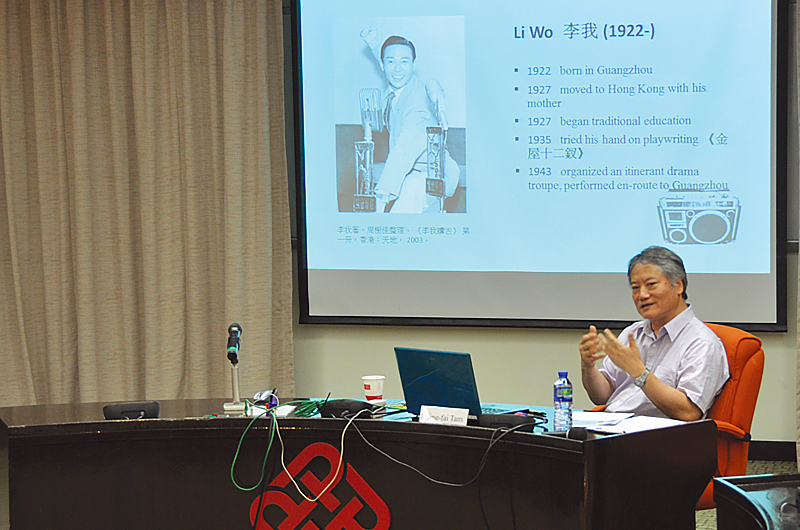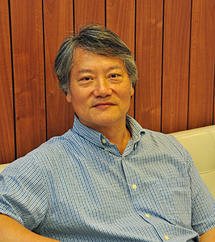
Dr Tam is fascinated with research in Chinese culture and cross-cultural understanding.
A strong desire to promote cross-cultural understanding drives
Dr Tam King-fai’s research into Cantonese stand-up comedy and twentieth century Chinese film and literature.
Educated in Hong Kong and the US, Dr Tam spent 18 years working in various universities in the US before deciding it was time to “reboot” himself professionally when he returned to Hong Kong in 2008. Having been able to spend only two or three weeks at a time in the city for several years, he believed that “sustained exposure to life in Hong Kong” would benefit his research on Chinese culture.
Two years later, in 2010, Dr Tam joined the newly formed Department of Chinese Culture at PolyU. He was intrigued by the Department’s experimental nature. He said, “while other universities focus their China studies programmes on specific fields such as literature, history, philosophy or religion, PolyU aims to provide students with a comprehensive coverage of Chinese culture”. This was a particularly innovative concept, he noted, given PolyU’s focus on science and technology, and one that was well suited to his wide-ranging interest in Chinese culture.
Explaining what attracts him to Cantonese stand-up comedy, Dr Tam said that he was interested in its use as a vehicle for the “expression of public sentiments”. Cantonese stand-up emerged in the 1980s, when Hong Kong was experiencing an unprecedented period of cultural and political freedom. However, despite its name, Dr Tam explained that Cantonese stand-up actually derives its humour from English and Putonghua, as well as Cantonese, reflecting the special linguistic make-up of Hong Kong society.
He was recently awarded a conference grant from the Chiang Ching-kuo Foundation to host a conference on political humour in Chinese mainland, attracting participants from as far away as the US, Italy, the UK and Canada.
With its focus on Chinese culture and cross-cultural understanding, Dr Tam’s research is particularly pertinent to students in Hong Kong. He explained, “students are very well aware of the global age that they live in and cross-cultural understanding is therefore something they contend with from day to day, if only on a subconscious level”. His interest in the topic was sparked while teaching in the US, at a time when more and more Chinese people were traveling outside mainland China. He found that while students readily accepted Westerners’ stereotypes of China and Chinese people, they had to be brought around to the idea that Chinese people also have stereotypes of other people and cultures.
Dr Tam’s current interest is in an area that few would expect cross-cultural understanding to be lurking – spy fiction. He noted that the genre is built upon the premise of international antagonism and the notion that relations between states are full of suspicion and distrust. Yet recent spy novels in China and elsewhere have succeeded in “transcending the interests of individual states” to examine the “human condition under state surveillance and worldwide rivalry”. There is always, it seems, a way to better understand our complex world. ♦

